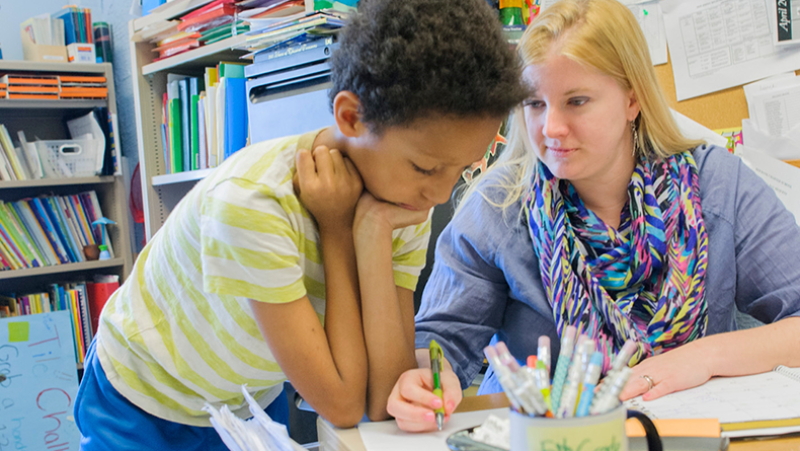Restorative Practices
Barton Institute supports alternative disciplinary approaches that result in improved student outcomes

Many contemporary public school systems deal with behavioral issues in a traditional punitive fashion, isolating a rule breaker through suspension or expulsion. These practices impede students’ chances to learn, are often ultimately ineffective and do not change the behavior. Furthermore, these types of punishments tend to be imposed more frequently on students of color. Their white peers receive less exclusionary consequences and, as a result, enjoy disproportionately better opportunities to stay in class, learn more, earn a degree and stay off the streets.
So, what if there were an alternative? Luckily, there is. In 2008, Denver Public Schools (DPS) passed a discipline reform policy that aimed to reduce the number of out-of-school suspensions and expulsions. The new policy addressed equity issues, encouraged educators to understand root causes of behavioral problems and promoted the use of “restorative practices,” which help teach students social, emotional and conflict-resolution skills. It’s a “problem-solving, proactive approach,” notes Yolanda Anyon, PhD, an assistant professor at the Graduate School of Social Work (GSSW) who is evaluating and documenting the progress and success of the DPS initiative. So far, the approach has seen success in the form of improved student outcomes: Recurrence rates for discipline incidents drop from 70% to 28% — and even as low as 18% in some schools — when a disciplined student participates in restorative practices.
Currently, a cohort of 16 DPS schools meets with Anyon and central office leaders in a monthly learning community to discuss ways to improve schools’ use of restorative practices and to receive coaching and professional development to expand the program. “We took a body of research knowledge and translated it into practical tools for educators in our local communities to use in their daily practice,” Anyon adds.
To help continue that success, the University of Denver’s Barton Institute for Philanthropy and Social Enterprise has partnered with Anyon to support her work and has invested in a technology and innovation fund to help expand the use of restorative practices across DPS. The ultimate goal, of course, is to keep students in school and learning. “In the future, I hope all schools are a welcoming space for all students,” Anyon says. “I hope to see the number of schools using restorative practices spread throughout the district.”
Read Anyon’s report on “Taking Restorative Practices School-Wide.”


